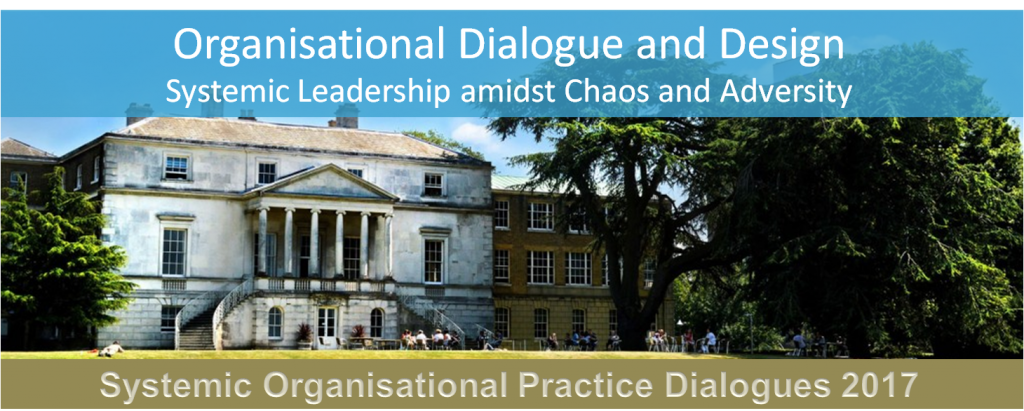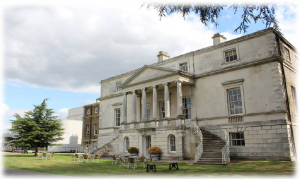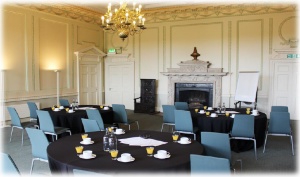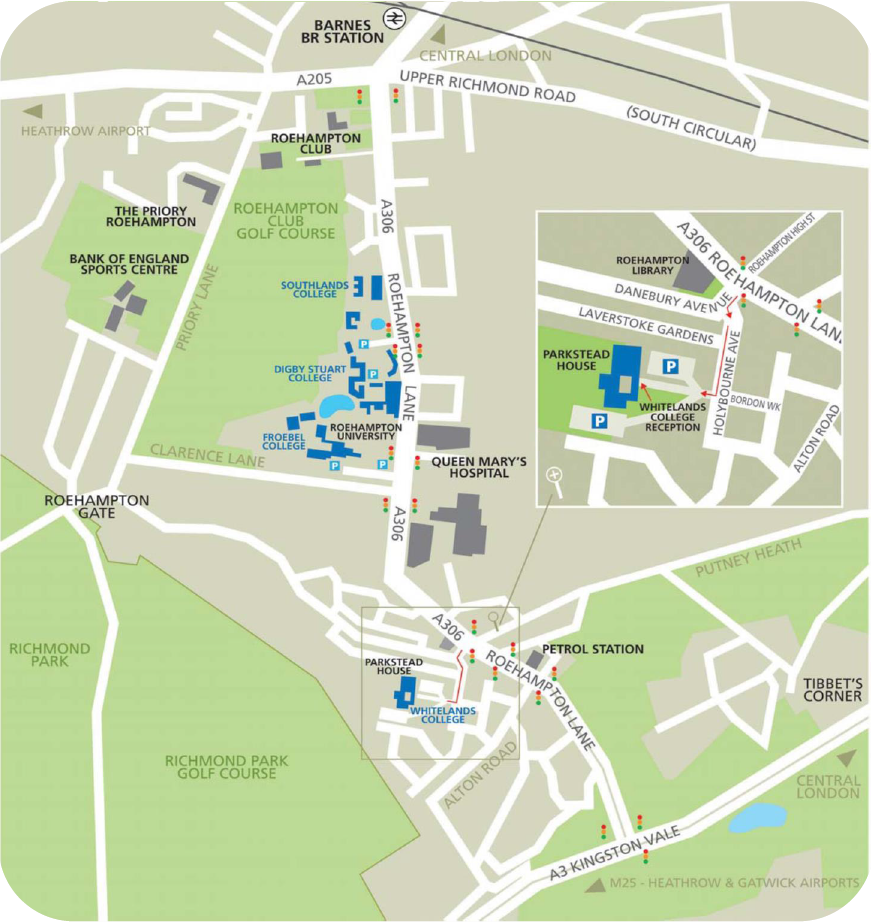June 9-12, 2017, 9:00-18:00
Chambers Suites, Parkstead House, Roehampton, London, SW15 4JD
We are inviting you to join this four day collaborative event which will be focused on development, learning and sharing of systemic organisational practice, with inputs from key note speakers and participants.
The key topic of this year’s Dialogues is Organisational Dialogue and Design and we will generate multiple insights, practical resources and sense-abilities for Systemic Leadership amidst Chaos and Adversity. This conference is a collaborative space for leaders, consultants, clinicians, practitioners to share and develop resources for moving their organisational practice and contributing to client systems.
The overall programme of multiple exchanges, key note inputs, participant presentations, plenary dialogues and group performances will be facilitated by Christine Oliver and Martin Miksits.
- about practice dialogues
- the programme
- your invitation to contribute
- speakers
- conference venue and directions
- accomodation
- registration and fee
- registration closed
About practice dialogues
With the conference format of practice dialogues we are aiming to engage practitioners such as organisation development consultants, executive coaches, organisational leaders, managers, clinicians, social workers, researchers, religious and community leaders, who are interested in the application of systemic and social constructionist practice in relation to organisational emergence. Participants are invited to take an interest in learning from each other’s practice as well as from planned workshops.
The format of this four day developmental journey is one of collaborating, co-creating, learning and exchange on multiple levels. Participants will learn in relation to individual aims, plenary discussions and workshops, but also from groups of practitioners with related aims and interests to process and develop learning. These practitioner groups will be invited to share and exchange their work throughout the conference.
The Systemic Organisational Practice Dialogues are a platform to develop your relationships within the community of systemic practitioners and with systemic thinking and practice concepts, and to make concepts and experiences relevant to your practice, your team or your organisation. It is also a place to share your practice with others and to talk about what you are doing, what has been successful and also what you are hoping to develop. There will be space for such dialogical exchanges in plenary sessions and in small group work.
The programme

The programme includes coffee, tea, pastries and a gourmet sandwich lunch served with crisps and fresh fruit and a complimentary conference supper party at Christine Oliver’s house on Sunday evening. The conference dinner on day 1 at a nearby pub is optional and not included with the course fee.
Friday, June 9, 2017 – 9:00 – 18:00
- Introduction, aims, formation of groups
The conference starts with an orientation – to each other, to our individual and collective aims, to how we wish to relate to and achieve specific and emergent outcomes. This includes the formation of small groups of participants who will provide stability for learning, reflecting with and supporting its members over the four day conference.

 Organisational design – designing the dialogue
Organisational design – designing the dialogue
Christine Oliver and Martin Miksits
People in organisations need to experience partial influence over the outcome of their coordinating, of their being in organisation together. To that end, organisational design conversations are practical means for inviting transparency and accountability to what people in organisations will make. Taking this perspective we frame such dialogues as an engagement with desired possible futures – an imaginative achievement – oriented to meet the organisation‘s aesthetic ends. The choices involved in organisational design are meant to set binding contexts for coordination, standards for meaning making and acting. Inevitably this raises issues for how power is used in design processes and the implications of design for organisational members.
We will propose, and illustrate through experience and practice, how systemic sensibilities can usefully inform practitioners in their positioning and contributing in design conversations; and how the design of dialogue can implicate the outcome of such conversations. We will further develop ideas about how a systemic stance can inform considerations for complexity, discretion, inclusiveness, diversity, for continuity and disruption of organisational discourse, to facilitate the achievement of the organisation’s purpose.
- Practitioner groups working on participant aims and interests
Working in interest groups and reflecting on emergent learning and interests.
- Plenary dialogue on learning from inputs
All participants / groups come together for sharing and reflecting on day 1.
- Conference dinner at pub (optional)
Saturday, June 10, 2017 – 9:00 – 18:00
 Communication, Design, and Leadership
Communication, Design, and Leadership
J. Kevin Barge
I am interested in how communication can be viewed as a designed activity where leaders invite others into particular patterns of communication to move organizational activities and goals forward. A new metaphor of leaders as designers of communication can be used to elaborate existing discursive and social constructionist approaches to leadership.
Building on recent trends from the literature and practice on communication as design, we will explore the power of design thinking for co-creating forms of joint action that facilitate accomplishing important organizational activities and goals. Communication as design will be presented as a useful perspective for working through the co-creation of conversational episodes as well as large sequences and flows of communication associated with larger organizational processes such as strategic planning, organizational development, and organizational change.
- Organisational Dialogue and Design –
Systemic Leadership amidst Chaos and Adversity,
Participant inputs
Participants offer short presentations and workshops in relation to the topic of ‘Organisational Dialogue and Design – Systemic Leadership amidst Chaos and Adversity’- you are welcome to register your interest to contribute in this way!
 A consultant’s story about the work to support a management team to work their way to become a high functioning organisation
A consultant’s story about the work to support a management team to work their way to become a high functioning organisation
Maria Brixemo
This consultant story is about an assignment aimed at supporting a management team to start functioning in order for them to succeed in the much needed development process in which everyone in the organisation needed to be involved.
The organisation had grown over the years, both in numbers of employees, and also in complexity of their mission. There had been several organisational changes that had not settled, and the management team had some serious problems working together as a team against the backdrop of organisational and external challenges.
This work is still in progress. I will share the systemic approach and methods that were helpful in building the trust needed to start the work with the management team, and also the initial workshops that have now brought them together to a collaborating team highly motivated to succeed in their mission. I will also share some experiences about a workshop with them connecting with their next level of managers to make them involved in their part of the developmental process.
It will be a story about ”going with the systemic flow” working in a co-creative way with/in communication, listening, positioning, coordinating and the making of connections in many different ways.
 Promoting systemic, intelligent and thoughtful practice in this challenging period of chaos and change
Promoting systemic, intelligent and thoughtful practice in this challenging period of chaos and change
Claire Holman
This workshop will address the challenges currently faced by the Hackney Recovery Community Mental Health Teams (CMHT) and invite you to design a meeting that will assist us with our next period of chaos and change.
I will start with a narrative of the experience of the North Hackney Recovery CMHT through a recent period of chaos and adversity. This will include stories from service users (most of whom live with chaos and adversity on a daily basis) and staff (who strive to embed an ethos of recovery and resilience in our work and our team). I will explain how we have weathered the storms of adversity as funding cuts have reduced our staff numbers and forced us to move from our office base with little notice or involvement in these decisions. I will explore how relating our plight to service user experience has helped some to build resilience, and how a clear preference for different modes of ‘leadership through change’ has emerged; one more systemic and the other more hierarchical. I will move on to explaining the next challenge that the team faces and the FACT (Fast Assertive Community Treatment) model that has been suggested as a useful means by which the CMHTs can manage forthcoming changes to the culture and practice of the team.
I will then invite participants in groups to design an alternative approach – with an alternative acronym – that the CMHTs could use to promote systemic, intelligent and thoughtful practice in this challenging period of chaos and change.
- Practitioner groups working on participant aims and interests
There will be time in the morning and afternoon for practitioner groups to reflect on learnings and develop thinking in relation to participant aims and group purpose.
- Plenary dialogue on learning from inputs
All participants / groups come together for sharing and reflecting on day 2.
- No formal evening programme
Sunday, June 11, 2017 – 9:00 – 18:00
 Creating relationships and conversations that can endure and grow when raw emotions and galvanized defensive processes threaten progression: from the micro parent-baby relationship that is at risk to the the larger organizational system
Creating relationships and conversations that can endure and grow when raw emotions and galvanized defensive processes threaten progression: from the micro parent-baby relationship that is at risk to the the larger organizational system
Amanda Jones
I will use a specific organisational setting to open up discussion about the skills needed to work with powerful emotional states that can emerge in a variety of situations in which threat and risk rouse defensive responses. As the strategic and clinical lead of the UK’s largest community NHS perinatal parent-infant mental health service, I have experience working with the multiple agencies that become involved when a parent who is emotionally ill has the challenge of looking after a newborn baby. The risks are high.
Video material of both ordinary baby development and babies trapped in situations of emotional constraint will highlight how in my specific clinical work and other systemic situations it is worthwhile to design conversational capacities to manage raw emotions without becoming rigidly defensive. Examples will be offered from the following: detail of an intimate psychotherapy relationship working with a mother and baby; detail of escalating tensions between the service I work for and children’s services whilst we struggled to work together to manage risk in a high-profile case; detail of participating in some policy groups trying to highlight the need for early intervention for parents and babies at risk. The subject matter is emotionally challenging and arousing and dialogues that ensure we can find a way of speaking about difficult and painful matters without being harsh or cowardly need to happen. In the three situations, the thread of how defensive processes risk thwarting progress will be highlighted alongside ways to try and prevent this happening by constructing emotionally authentic relationships and interactions with the different micro and macro systems involved.
These experiences can provide insight for leaders, consultants and all organisational members, facilitating the integration of emotional and thinking responses into the often difficult conversations we need to have in our organisational lives.
- Organisational Dialogue and Design –
Systemic Leadership amidst Chaos and Adversity,
Participant inputs
Participants offer short presentations and workshops in relation to the topic of ‘Organisational Dialogue and Design – Systemic Leadership amidst Chaos and Adversity’- you are welcome to register your interest to contribute in this way!

 An organisational framework for integrity: An approach exploring authentic experiences of relationships in times of change.
An organisational framework for integrity: An approach exploring authentic experiences of relationships in times of change.
Yvor Broer & RajVinder Singh Gill
Organisational stories can sometimes reference a uni-verse without accounting for how this has come about and what has been discarded and relegated to achieve this. In the workshop we will offer facilitative spaces to reflect on and explore the emergence of new stories of organisational discourse. This will be achieved through considering the positioning of dialogical practices within the boundaries of organisational practices. Being explicit about assumptions can create a space that is containing and in which participants feel safer to engage in exploration of the multiverse with reference to the organisation’s task.
This workshop will elaborate on various domain models, such as the CMM model developed by Oliver and Miksits as well as others connected to the work of Maturana to help us think about the value of transparency in reflective and reflexive discussions for enabling empowerment of organisational members.
The workshop will offer contexts for:
– Reflection, learning and development
– Curiosity and learning
– Articulating purpose for facilitating explicit dialogical exchange
– Developing newer narratives while acknowledging existing narratives.


 Developing Difficult Conversations
Developing Difficult Conversations
Donna Swanberg, Chris Murray and Soulmaz Bashirirnia
There are multiple contexts inviting and requiring change in public services. As Service Managers in Children’s Social Care, we are required to take a lead on service development. This means designing approaches to the outcomes required, self evaluation and measuring impact. Inherent in this process is a request that our partner agencies, i.e., police, education providers, health, community agencies, mental health services, also, reflect and evaluate their services which poses many challenges and barriers. We therefore have to develop difficult and uncomfortable conversations in the context of cultural change.
We will explore with the group how we might create a set of strategic principles and/or questions to use as a tool to frame continuing dialogue in this context.
- Practitioner groups working on participant aims and interests
There will be time in the morning and afternoon for practitioner groups to reflect on learnings and develop thinking in relation to participant aims and group purpose.
- Plenary dialogue on learning from inputs
All participants / groups come together for sharing and reflecting on day 3.
- Course supper party at Christine Oliver’s house (complimentary)
Monday, June 12, 2017 – 9:00 – 15:00
- Organisational Dialogue and Design –
Systemic Leadership amidst Chaos and Adversity,
Participant inputs
- Practitioner groups – report out, presentations and performances
Sharing and integration of the process and outcome of group work. Groups are invited to present, perform, or otherwise share their learning in their own unique or creative ways.
- Conference reflections
In a final plenary session, participants are invited to share reflections and learnings on what has been created and how individual aims could be achieved or progressed, thus creating another level of integration and learning.
- Closing
Your invitation to contribute
Having joined the Systemic Organisational Practice Dialogues you will find yourself in a position of co-creating the conference and each other’s experience and position in it from day 1. Inviting collaboration in a community of practice we hope that dialogue and collective inquiry into the topic of organisational dialogue and design will thrive on everybody’s contributions as much as on the resonance from inputs of key note speakers.
You are invited to take an active position in these dialogues and to make a brief contribution – be it on your practice, your research or the challenge you are facing in relation to your organisation and the positions for leadership created in it. We have planned for sessions of an hour for these contributions including some time for reflections and dialogue. If you are interested in leading such an input please contact Christine Oliver and Martin Miksits at dialogues@systemicdevelopment.eu.
Speakers

J. Kevin Barge (PhD) is a Professor and Head of Communication at Texas A & M University. He is also a member of the planning team for the Aspen Conference, a community of engaged organizational communication scholars focused on developing practical theory and collaborative research that bridge academic-practitioner interests.
Kevin’s major research interests center on developing a social constructionist approach to leadership, articulating the connections between appreciative practice and organizational change, as well as exploring the relationship between discourse and public deliberation, specifically practices that facilitate communities working through polarized and polarizing issues. Other research interests include investigating the role of reflexivity in leadership and management practice, examining ways to develop effective academic-practitioner collaborations, and developing practical theory. Kevin’s research is inspired by interpretive and discursive research approaches and he is keenly interested in how collaborative research methods can be used to generate usable knowledge and forward movement in organizations and communities.
He has published articles on leadership, dialogue, and organizational change in The Academy of Management Review, Management Communication Quarterly, Human Relations, Communication Theory, Journal of Applied Communication Research, and Communication Monographs. Kevin has served on a number of national and international editorial boards for journals such as Management Communication Quarterly, Journal of Applied Communication Research, and Human Relations. He is a former editor of Communication Studies.
 Soulmaz Bashirinia (BSc), Service Manager, Contextual Safeguarding Project, Hackney
Soulmaz Bashirinia (BSc), Service Manager, Contextual Safeguarding Project, Hackney
Soulmaz trained and qualified as a Social Worker and Social Pedagogue, with a Bachelor of Science in Social Work. After qualification she continued her training in Family Therapy and Systemic Practice; she is a systemic practitioner since June 2014, trained at Birmingham Children’s Hospital.
With over 10 years of experience in a variety of social work contexts and cultures, including Sweden, Iran and England, Soulmaz has developed an interest in organisational change. She is now leading a project that aims at implementing Contextual Safeguarding approaches across the organisation. Soulmaz is an experienced facilitator and participated in the Head Heart Hands Programme supporting Fostering Services to implement Social Pedagogical approaches.

Maria Brixemo (MSc) works with organisational and leadership development. She holds a Master degree in Organisational Studies and Systemic Leadership, University of Bedfordshire and Kensington Consultation Centre, 2007 and has studied Human Resources in Sweden.
Maria has worked for many years as an independent consultant, in the contexts of occupational health consultation, steel/manufacturing, pharmaceutrical industries; health and social care; the financial sector and church organisations. She is licensed to use The Human Element and Radical Collaboration, Will Schutz Associates and Myers Briggs Type Indicator.

Yvor Broer is an organisational consultant and trainer and works across Europe, mainly in the area of communication and organisational development. He builds his work on Systemic Constructionist theories and is especially drawn to the application of narrative approaches in organisational development, and more recently narrative medicine. He is managing partner at In Dialogue (www.in-dialogue.org), and currently graduating the MSc Systemic Leadership and Organisational Development, at the University of Bedfordshire.

Claire Holman is a senior mental health social worker with an MA/MSc in Social Work. She has worked in the London Borough of Hackney for the past 11 years and is an AMHP (assessing and detaining under the Mental Health Act), BIA (Using the Mental Capacity Act to make best interest decisions) and practice educator and trainer. During her own social work training she developed an interest in systemic and strengths based models of practice and her final research dissertation explored the positive, pleasurable and beneficial aspects of serious mental illness. Claire has experience in setting up an Early Intervention in Psychosis Service and in family work, working with diverse interpretations of mental illness, reflective practice, working with gangs, forensic social work, crisis work and risk management, mental health and human rights law, and working with duel diagnoses. Claire provides clinical and managerial leadership within the multidisciplinary North Hackney Community Mental Health Team as a senior practitioner, supervisor, and recovery and social care lead. She is involved with the Hackney Kidstime Workshops (facilitating communication and openness within and between families where one or both parents has a serious mental illness) and is part of the Family and Couple Therapy Service in the Specialist Psychotherapy Department in Hackney.
 Amanda Jones (PhD) is Strategic & Clinical Lead of NELFT NHS Foundation Trust’s Perinatal Parent Infant Mental Health Service. She trained as a systemic therapist and pursued her doctoral research at the Tavistock Centre/UEL. Her clinical role now is as a consultant perinatal psychotherapist. Her research studied a continuing interest in how mothers’ use of maladaptive defensive processes can derail their baby’s development. This is also so within teams and organisations. In collaboration with the Anna Freud Centre, Amanda was the therapist in the Channel Four award-winning documentaries ‘Help me love my baby’. With the NSPCC and Warwick Medical School she made 5 further documentaries called ‘Breakdown or Breakthrough: pregnancy, birth and the first 18 months of life’, available for free online, for all practitioners working with parents and babies in distress.
Amanda Jones (PhD) is Strategic & Clinical Lead of NELFT NHS Foundation Trust’s Perinatal Parent Infant Mental Health Service. She trained as a systemic therapist and pursued her doctoral research at the Tavistock Centre/UEL. Her clinical role now is as a consultant perinatal psychotherapist. Her research studied a continuing interest in how mothers’ use of maladaptive defensive processes can derail their baby’s development. This is also so within teams and organisations. In collaboration with the Anna Freud Centre, Amanda was the therapist in the Channel Four award-winning documentaries ‘Help me love my baby’. With the NSPCC and Warwick Medical School she made 5 further documentaries called ‘Breakdown or Breakthrough: pregnancy, birth and the first 18 months of life’, available for free online, for all practitioners working with parents and babies in distress.
Amanda speaks at national and international conferences and teaches on several university clinical courses. She contributes in several governmental policy groups to try and enhance understanding about the importance of early intervention and the need to develop equitable integrated psychotherapy and psychiatric NHS community perinatal parent infant mental health services in the UK. Amanda has brought her work to life and to the public eye in her collaboration with film making on such subjects as parent-infant attachment, postnatal depression and its impact on a baby’s development as well as adolescent motherhood.
 Chris Murray (MA), Youth Programmes and Projects Manager, Young Hackney
Chris Murray (MA), Youth Programmes and Projects Manager, Young Hackney
Chris is JNC trained and qualified in Youth & Community studies, with a MA in Childhood and Youth: Frameworks for Integrated Practice. Following 10 years working in Norfolk for Children’s Services, initially as the Area Youth Work Manager then the Locality Co-ordinator (Service Manager) for West Norfolk and Breckland District Areas he relocated and was appointed to the post of Youth Programmes Manager in Young Hackney in 2013 and was successfully appointed to his current post in 2015.
Chris tutored on the intercultural dialogue module at Anglia Ruskin University in 2013 (1st and 3rd year students in Youth and Community Studies) and was an external assessor for Pan –European Youth Programmes and Youth Exchanges which aim to tackle racial discrimination across Europe for the British Council from 2010 -14. He is also a Graduate of the Virtual Staff College Network for future Black & Asian Leaders BALI).

RajVinder Singh Gill (MSc) is head of psychology at an organisation that provides education and residential services to children and adults with learning disabilities. He draws on a diversity of psychological theories including Psychoanalytic thinking, Family therapy and Social constructionist Systemic approaches. Raj provides clinical supervision, coaching, training and organisational development to a diverse audience of individuals and teams. Alongside his degrees in educational psychology he has completed courses at Tavistock, Institute of Group Analysis and the MSc Systemic Leadership and Organisational Development, at the University of Bedfordshire.
 Donna Swanberg (PgDip), Service Manager, Access, Assessment and Family Support Services, Hackney
Donna Swanberg (PgDip), Service Manager, Access, Assessment and Family Support Services, Hackney
Donna trained and qualified as a Social Worker in Auckland, New Zealand in 1997 and gained a Post Graduate Diploma in Child and Adolescent Health in 2000. She worked in an organization providing systemic residential, educational and therapeutic provision to children and young people with conduct disorders before coming to London in 2001 to work as a child protection social worker.
With 17 years of experience in a variety of social work contexts and cultures, Donna is the strategic lead for Adult Mental Health and Child and Adolescent Mental Health in Hackney. She is an experienced facilitator and trainer and is particularly interested in developing social work practice.

Christine Oliver (PhD) co-leads the MSc in Systemic Leadership and Organisational Development with Martin Miksits for the University of Bedfordshire. She also works as Consultant Family Therapist and Group Analyst for East London Foundation Trust and is an independent psychotherapist and organisational consultant working to facilitate individual and organisational development.
Christine provides systemic leadership and management training and consultancy for public, private and not for profit organisations locally and globally. A primary interest is in consultancy methodologies for structuring dialogue to engender reflexive practice in the workplace. She has contributed to the development of systemic theory and practice through many published papers and through her most recent books: Reflexive Inquiry, published by Karnac, London (2005) and Complexity, Relationships and Strange Loops, published by the MHA Institute, Canada (2003).
 Martin Miksits (DProf) works as coach and consultant with leaders, teams and organisations. He also works as systemic therapist in private practice. His consulting experience is in facilitating organisational transitions, development and learning, for instance in relation to organisational practice, process, performance, strategy or culture, using systemic, appreciative and collaborative approaches.
Martin Miksits (DProf) works as coach and consultant with leaders, teams and organisations. He also works as systemic therapist in private practice. His consulting experience is in facilitating organisational transitions, development and learning, for instance in relation to organisational practice, process, performance, strategy or culture, using systemic, appreciative and collaborative approaches.
Martin draws on twenty years of industry experience working mostly in international management positions. These include assignments as a global programme manager leading major strategic change initiatives in a global company, business development and sales management in North Latin America, management of merger and acquisition projects in the Netherlands and in Belgium, cultural change and process change in Austria and in the UK.
Conference Venue
Chambers Suites, Parkstead House, Roehampton, London, SW15 4JD
Parkstead House is situated in Whitelands College of the University of Roehampton, just a five minute bus ride from Barnes mainline station and minutes from the A3. There are also regular bus services from Putney, Wimbledon and Hammersmith which all have underground stations direct to central London. This location is within easy reach of Heathrow airport and has a number of car parking spaces available on site. For directions please refer to the last page of this flyer.
Directions
Location Map – Whitelands College, Parkstead House
Train
The nearest station is Barnes, from which it is about 25 minutes walk to Whitelands Campus, or take buses 72 or 265, which stop outside all campuses. Trains to Barnes run from Clapham Junction, London Waterloo, Staines and Windsor.
Tube
District/ Piccadilly/ Hammersmith & City lines to Hammersmith. From the tube station, go to bus stop K in the Lower Bus Station next to the shopping centre (see the map of Hammersmith Bus Station on the TfL website) and take bus 72 to all campuses.
District line to Putney Bridge. From outside the tube station, take bus 265 to all campuses.
Bus
Buses that stop nearby: 72, 265, 493, 170, 493. Travelling up Roehampton Lane, alight at the stop just before the junction with Danebury Avenue. Turn right down Danebury Avenue and then take the immediate left onto Holybourne Avenue. Whitelands is a minute’s walk on the right-hand side. If you are travelling from the direction of the A3 alight at the stop just after the junction with Danebury Avenue.
Accomodation
Accomodation available at Roehampton University Campus
We have made a provisional reservation of several rooms in the Elm Grove Centre of the nearby University Campus. These are small doubles with all amenities including ensuite bathroom, iron & ironing board, hair dryer, tea & coffee making facilities and a TV. The price is £57.00 per night.
Please contact Jessica.Gardiner@roehampton.ac.uk directly to make a reservation. It is sensible to do this as far in advance as possible to secure university accommodation.
Nearby Bed and Breakfasts
Please contact us if you want a recommendation on nearby bed and breakfasts.
Registration and fee
The fee for the four day Systemic Organisational Practice Dialogues is 580 pounds. This includes coffee, tea, pastries and a gourmet sandwich lunch served with crisps and fresh fruit and the complimentary course supper party at Christine Oliver’s house. For bookings before March 31, 2017, a reduced (early bird) fee of pounds 490 is applicable.
Click here to register online (registration now closed) or contact us to dialogues@systemicdevelopment.eu with any queries you may have.



